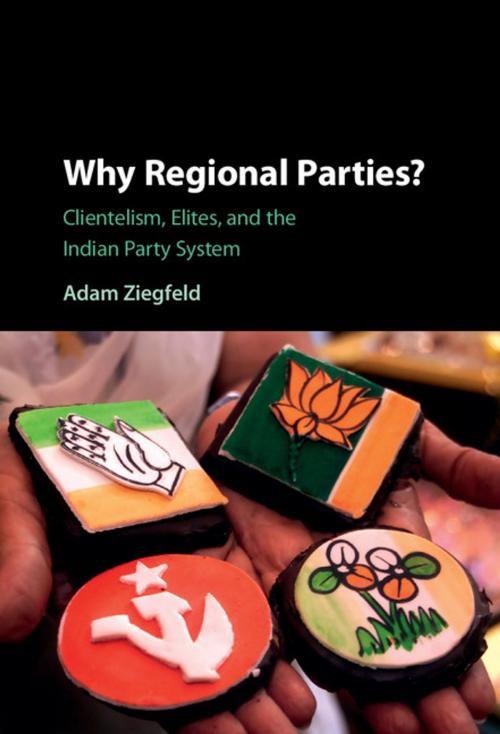Why Regional Parties?
Clientelism, Elites, and the Indian Party System
Nonfiction, Social & Cultural Studies, Political Science, Government, Political Parties, International| Author: | Adam Ziegfeld | ISBN: | 9781316537718 |
| Publisher: | Cambridge University Press | Publication: | February 19, 2016 |
| Imprint: | Cambridge University Press | Language: | English |
| Author: | Adam Ziegfeld |
| ISBN: | 9781316537718 |
| Publisher: | Cambridge University Press |
| Publication: | February 19, 2016 |
| Imprint: | Cambridge University Press |
| Language: | English |
Today, regional parties in India win nearly as many votes as national parties. In Why Regional Parties?, Professor Adam Ziegfeld questions the conventional wisdom that regional parties in India are electorally successful because they harness popular grievances and benefit from strong regional identities. He draws on a wide range of quantitative and qualitative evidence from over eighteen months of field research to demonstrate that regional parties are, in actuality, successful because they represent expedient options for office-seeking politicians. By focusing on clientelism, coalition government, and state-level factional alignments, Ziegfeld explains why politicians in India find membership in a regional party appealing. He therefore accounts for the remarkable success of India's regional parties and, in doing so, outlines how party systems take root and evolve in democracies where patronage, vote buying, and machine politics are common.
Today, regional parties in India win nearly as many votes as national parties. In Why Regional Parties?, Professor Adam Ziegfeld questions the conventional wisdom that regional parties in India are electorally successful because they harness popular grievances and benefit from strong regional identities. He draws on a wide range of quantitative and qualitative evidence from over eighteen months of field research to demonstrate that regional parties are, in actuality, successful because they represent expedient options for office-seeking politicians. By focusing on clientelism, coalition government, and state-level factional alignments, Ziegfeld explains why politicians in India find membership in a regional party appealing. He therefore accounts for the remarkable success of India's regional parties and, in doing so, outlines how party systems take root and evolve in democracies where patronage, vote buying, and machine politics are common.















